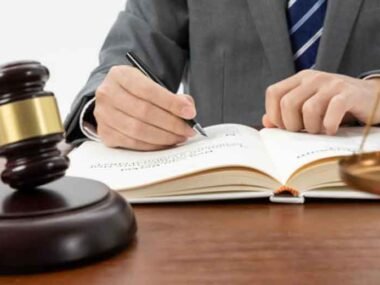Getting charged with a crime in Sydney is terrifying. Whether you’ve never had to deal with the police before or if you’ve ever got in trouble before, getting charged with something severe can change your life. You could be worried about what will happen next, how terrible things could go, or if you’ll have to go to court.
But here’s the thing: you’re not alone, and this doesn’t have to define you.
I’ve had friends, clients, even a cousin who thought their life was over after getting charged with something they didn’t fully understand. The truth? Many criminal offences are more common than you’d expect—and there are ways to fight them. So, let’s break down the most common charges in Sydney and what you can do if you’re caught up in one.
1. Assault Charges
Assault is the one criminal offence that sounds extreme, but the legal definition in NSW can include something as simple as a threat. A heated pub argument, a shove at a concert, or even a text that’s perceived as intimidating can land you with an assault charge.
There are different levels, too:
- Common assault
- Assault causing actual bodily harm
- Grievous bodily harm (GBH)
A personal note? A mate of mine once got charged with common assault after a shouting match outside a nightclub. No punches were thrown—but someone called the cops, and that was enough to get the ball rolling. It took a good lawyer and some witness statements to clear things up.
How to fight it:
Your lawyer will look at whether you acted in self-defence, if the alleged victim exaggerated, or if you were even involved at all. Surveillance footage and witnesses can be game-changers here.
2. Drug Possession and Supply
Let’s not sugar-coat it—drug charges are still very common across Sydney. Whether it’s a small bag of weed or something heavier like ecstasy or cocaine, being caught with drugs can land you in court fast.
Possession is one thing. But if police think you planned to supply (even if it was just to friends), the stakes get a whole lot higher.
How to fight it:
You can argue that the drugs weren’t really yours, how they were found (illegal checks do take place), or if you even knew they were there. Individuals who knock the law for the first time could be able to enter into diversion programs or gain a break, particularly if they are willing to take responsibility and show that they have learnt from what happened.
3. Theft and Property Offences
Shoplifting. Breaking into a car. Stealing a phone. Even holding onto something you “found” that wasn’t yours.
These are all criminal offences under NSW law, and they happen more often than you think—sometimes in the heat of the moment, sometimes because someone just made a really poor choice.
How to fight it:
Intent matters. Did you knowingly steal something, or was it a misunderstanding? Were you with someone else who did the stealing? Your lawyer will dig into the details and help you explain your side. If it’s your first offence, the court may consider a lighter sentence or no conviction recorded.
4. Drink Driving (DUI)
We’ve all heard the warnings, but people still get behind the wheel after a few drinks. Drink driving is one of the most common reasons people end up in Sydney courts.
Sometimes it’s just bad judgment. I know someone who thought they were “fine to drive” after dinner and a couple of wines. The next morning, they were shocked to find they were still over the limit, and they got pulled over on the school run.
How to fight it:
A good lawyer might question the accuracy of the test, whether police followed proper procedures, or your unique circumstances. If it’s your first offence, you may be able to reduce the penalty by attending a traffic offenders program.
5. Domestic Violence Offences
These charges are quite serious, as they should be. But occasionally they come from family fights that are very stressful and where feelings go out of control, and things get worse quickly.
In New South Wales, police generally have to file charges when a complaint is made, even if the individual who made the complaint doesn’t wish to do so later.
How to fight it:
A lawyer will examine the claims for inconsistencies, whether there was an actual threat or injury, and the situation in which the event happened. People do make false claims, especially when they are going through a breakup or a custody struggle. To build a good defence, you need to convey your side of the argument clearly and with confidence.
6. Fraud and White-Collar Crime
Not all criminal offences involve violence or drugs. Fraud, identity theft, and financial crimes are on the rise, especially with everything moving online.
We’re talking about things like:
- Misusing work funds
- False insurance claims
- Hacking or identity scams
How to fight it:
A lot of the time, it boils down to intent. Did you mean to lie to a person or make the wrong choice in a complicated system? You need a lawyer who knows how to delve deep and establish a strong case because these cases depend a lot on financial records and digital traces.
So, What Should You Do If You’re Charged?
The biggest mistake you can make is to freak out and not pay attention. No matter how small it looks, a crime can affect your employment, connections, trips, and future chances.
Here’s what you should do right away:
- Don’t fight with the police and stay calm.
- Say what you need to say and nothing more.
- Get in touch with a criminal defence attorney right away.
- Be open and honest with your lawyers. They want to help you, but they can’t if they don’t know everything.
You’re More Than a Mistake
Individuals from many walks of life have gotten caught up in the criminal system at LY Lawyers. Some were young individuals who made one stupid choice, and others were professionals who were just in the wrong place at the wrong time.
People should get a second opportunity. In a smart, aggressive legal defence. And by assisting people to move on with dignity and self-assurance.
Final Thoughts
Facing a criminal offence in Sydney doesn’t mean your life is over. But it does mean you need to take action—and fast. Whether it’s a drink driving charge, a misunderstanding that led to an assault claim, or a complicated fraud allegation, the right lawyer can make all the difference.
Don’t face it alone. Don’t guess. Talk to someone who knows the legal system, knows your rights, and knows how to fight for the best possible outcome.










